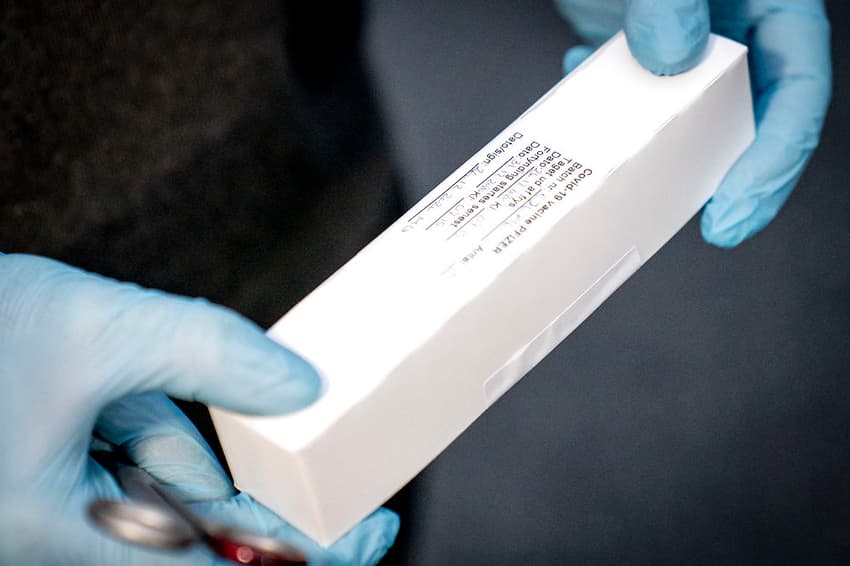Denmark to roll out Covid-19 'vaccine passport'

Denmark is to introduce official documentation for people to show they have been vaccinated against Covid-19, in a move that has received the backing of industries including air travel and festival organisers.
The Ministry of Health is to launch the ‘Covid-19 vaccine passport’ early this year, national broadcaster DR reports.
The ministry “is working on a Covid-19 vaccine passport which is expected to be ready in early 2021,” according to written information provided to DR.
Vaccinated people in the country will be able to download the documentation via the sundhed.dk website, by logging in with the secure digital NemID.
Proof of Covid-19 vaccination is expected to be useful for those travelling abroad, the ministry said.
“It is our expectation that there could be a requirement from other countries to produce (Covid-19) vaccine documentation at entry. This is where a Danish vaccine passport can be used,” they wrote to DR.
The documentation will be updated as new knowledge about the vaccinations – for example, for how long they are effective – emerges, they also noted.
The move was praised by Michael Svane, section head for Transport with the Confederation of Danish Industry.
“A vaccination passport is the way for us to put restrictions behind us and travel by air much more,” he told DR.
Svane added he hoped for an international solution to enable such documentation to be used worldwide.
Another section of the economy which could benefit from the concept is festivals and other events with attendances numbering multiple thousands.
“I think many festivals would use this because it can help to ensure that outbreaks don’t occur due to having an event,” Esben Marcher of Dansk Live, an interest organisation for Danish festivals and concert venues, told DR.
READ ALSO: Danish health ministry to develop Covid-19 'vaccine passport'
Comments (1)
See Also
The Ministry of Health is to launch the ‘Covid-19 vaccine passport’ early this year, national broadcaster DR reports.
The ministry “is working on a Covid-19 vaccine passport which is expected to be ready in early 2021,” according to written information provided to DR.
Vaccinated people in the country will be able to download the documentation via the sundhed.dk website, by logging in with the secure digital NemID.
Proof of Covid-19 vaccination is expected to be useful for those travelling abroad, the ministry said.
“It is our expectation that there could be a requirement from other countries to produce (Covid-19) vaccine documentation at entry. This is where a Danish vaccine passport can be used,” they wrote to DR.
The documentation will be updated as new knowledge about the vaccinations – for example, for how long they are effective – emerges, they also noted.
The move was praised by Michael Svane, section head for Transport with the Confederation of Danish Industry.
“A vaccination passport is the way for us to put restrictions behind us and travel by air much more,” he told DR.
Svane added he hoped for an international solution to enable such documentation to be used worldwide.
Another section of the economy which could benefit from the concept is festivals and other events with attendances numbering multiple thousands.
“I think many festivals would use this because it can help to ensure that outbreaks don’t occur due to having an event,” Esben Marcher of Dansk Live, an interest organisation for Danish festivals and concert venues, told DR.
READ ALSO: Danish health ministry to develop Covid-19 'vaccine passport'
Join the conversation in our comments section below. Share your own views and experience and if you have a question or suggestion for our journalists then email us at [email protected].
Please keep comments civil, constructive and on topic – and make sure to read our terms of use before getting involved.
Please log in here to leave a comment.